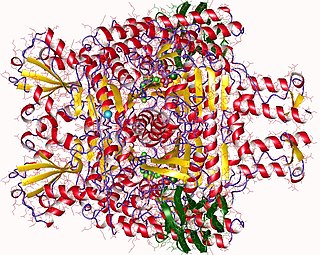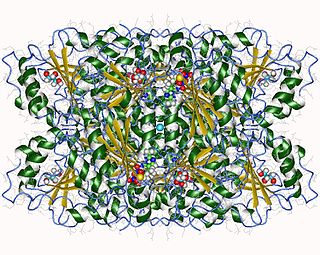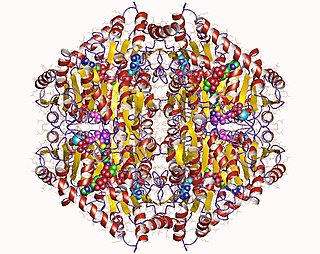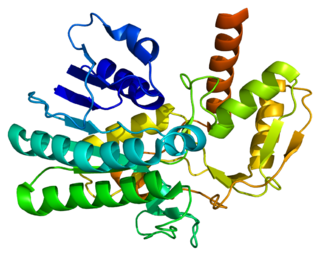| UDP-glucuronate decarboxylase | |||||||||
|---|---|---|---|---|---|---|---|---|---|
 UDP-glucuronate decarboxylase 1, dimer, Human | |||||||||
| Identifiers | |||||||||
| EC no. | 4.1.1.35 | ||||||||
| CAS no. | 9024-68-4 | ||||||||
| Databases | |||||||||
| IntEnz | IntEnz view | ||||||||
| BRENDA | BRENDA entry | ||||||||
| ExPASy | NiceZyme view | ||||||||
| KEGG | KEGG entry | ||||||||
| MetaCyc | metabolic pathway | ||||||||
| PRIAM | profile | ||||||||
| PDB structures | RCSB PDB PDBe PDBsum | ||||||||
| Gene Ontology | AmiGO / QuickGO | ||||||||
| |||||||||
The enzyme UDP-glucuronate decarboxylase (EC 4.1.1.35) catalyzes the chemical reaction
- UDP-D-glucuronate UDP-D-xylose + CO2
This enzyme belongs to the family of lyases, specifically the carboxy-lyases, which cleave carbon-carbon bonds. The systematic name of this enzyme class is UDP-D-glucuronate carboxy-lyase (UDP-D-xylose-forming). Other names in common use include uridine-diphosphoglucuronate decarboxylase, and UDP-D-glucuronate carboxy-lyase. This enzyme participates in starch and sucrose metabolism and nucleotide sugars metabolism. It employs one cofactor, NAD+.






